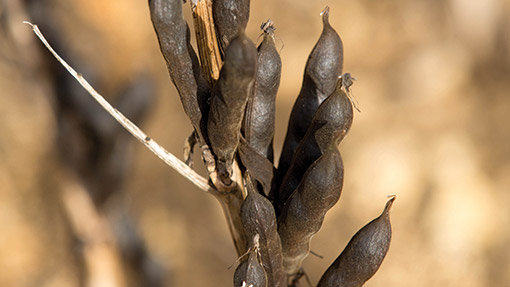Cereals 2014: Pulse breeders braced for increase in demand

Pulse breeders exhibiting at Cereals said they are ready to meet an expected surge in demand after Defra confirmed that nitrogen-fixing crops such as beans and peas can be included in ecological focus areas (EFA) – as well as helping farmers meet crop diversification rules.
Plant breeder and pulse specialist Wherry & Sons welcome the inclusion of nitrogen-fixing crops in the list of ecological focus area options. At the same time, peas and beans count towards new requirements that mean most arable farmers must grow at least three crops.
Currently, there are about 500 pea and 1,500 bean growers in the UK. Numbers are expected to rise as more farmers realise they will effectively receive support to grow pulses. “This is a positive step for food production and it will help the environment,” says Peter Smith, director of Wherry & Sons.
Mr Smith believes the UK should be able to cope with any sudden rush in demand for seed for peas and beans this season. “I don’t think it’s going to be a floodgate – peas are a special crop to grow and they [growers] have to know what they are doing,” he explains.
“We don’t want to see feast or famine on supply – it’s not good for anyone.”
That said, there is “enough winter bean seed coming in” for an increase in area. “There is probably enough supply for a 20-30% increase in area,” says Mr Smith. “There could be more, because we have farm-saved seed.”
Attracted by higher prices to grow more wheat and oilseed rape, many farmers have forgotten about the value of having pulses in the rotation, he adds. “They fix nitrogen for the following crop and are a great break crop to help farmers deal with blackgrass.”
A much bigger increase in people growing pulses is anticipated next spring. But some farmers have already made cropping decisions for this autumn to include winter beans. “Sometimes it’s the only time they plough in the rotation and they can bury the blackgrass deep down.”
Roger Vickers, chief executive of the Processors and Growers Research Organisation (PGRO), says: “There has been tremendous interest from growers wanting to know more about pulses in the crop rotation. People want to know what the CAP greening decision means for them.
“But they still have some uncertainty about how to interpret the EFA requirement.”

